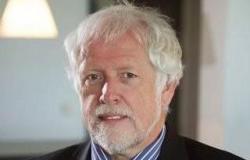There are not yet sufficient financial resources available for these expenses and, given the poor state of the municipal treasury, not all ambitions can simply be realized. In a now well-known one pavlovian reflex the municipal council points its fingers at The Hague with every financial deficit. Yet the reality is that the fragile financial position did not just happen to our municipality. It is a combination of structurally inadequate government resources and years of municipal policy that costs us millions.
Very expensive waste disposal station
Last week, on the same day, the city council debated two topics that are exemplary of the way in which the municipality of Groningen ended up in its current financial situation. For example, the coalition’s intention to set up a real circularity hub was on the agenda. This intention to create a third waste disposal station in the municipality will cost more than fourteen million euros. At this new location we would not only be able to dispose of our bulky waste, but a thrift store should also be created and there should be room for upcycling, disassembly and repairs. Of course there is nothing wrong with the ambition to encourage the reuse of products, but why this requires a new location, why this should cost fourteen million euros and why housing costs should be increased once again is anything but clear. Simply making the current waste collection stations circular or collecting bulky waste at home for free is not worth the effort for this municipal council. It has to be newer, bigger and therefore more expensive.
Disappointing ICT initiatives
In another room, the municipal council met about the failed outsourcing of the municipal ICT systems. In 2017, the municipality of Groningen decided to outsource its digital systems to Fujitsu. The justification was financial and not well thought out. In fact, experts’ warnings were dismissed or ignored. On paper, this risky development could result in annual savings of five million euros. Now, seven years later, it appears that little has come of this and the council is reconsidering that decision.
What is the financial damage? That remains a guess. The municipal council does not have the figures in order and so the municipal council is forced to evaluate without having insight into the extent of the millions wasted. Apart from the financial damage, dozens of internal IT employees have lost their jobs, municipal employees suffered for years with a large number of disruptions and a slow workplace, while residents often had to reschedule their appointments again and again. An ICT project for the Social Affairs and Employment department actually turned out even more dramatically. The intention was to merge the complete application landscape for the social domain into one application. The project cost the municipality 2.2 million euros and was stopped prematurely.
High ambitions, empty coffers
Unfortunately, these examples are no exceptions. Every month the city council considers new and subsequent projects with millions flying over the table. From the countless investment plans in the city center, to an alderman for protein transition and a multi-million infusion for cultural institutions. The very expensive municipal ambitions really seem to be impossible, while the municipal coffers are virtually empty. Time and again, the municipal council, with the support of a majority in the municipal council, has spent money as if our municipal coffers would spontaneously replenish themselves like a cornucopia.
Not surprisingly, not Greek mythology, but mathematics, turned out to be applicable to the size of our increasingly reddish municipal household budget. Again and again the coalition has been urged to be more frugal, to save to get some fat on the bones and to accept the simple law that resources are finite. Time and again, the coalition and a council majority chose to allow far-reaching ambitions and prestige projects to take precedence over a sound or at least responsible financial policy. We are where we are because of the choices made in recent years. The municipality of Groningen must change course because the current expenditure pattern is simply unsustainable without burdening residents and entrepreneurs further and more heavily than is bearable.’
Jalt de Haan
Municipal councilor CDA
Tags: Groningen thought recklessly rich long






